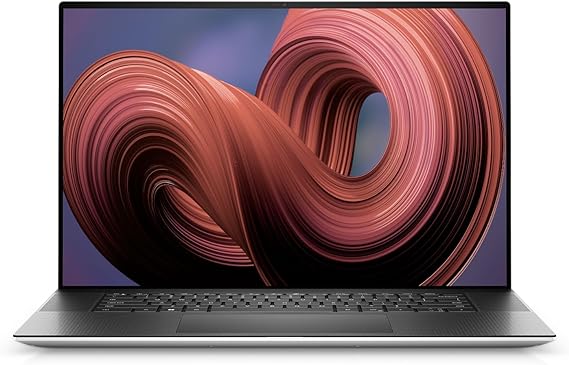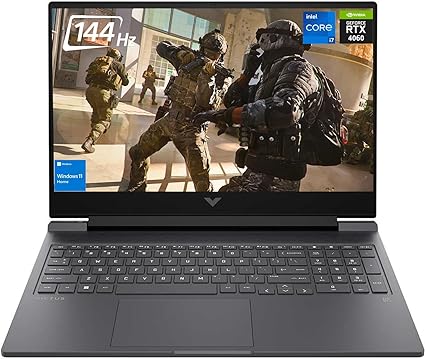Best laptops for biomedical engineering students | Biomedical engineering, a rapidly evolving field, requires powerful and versatile tools to tackle complex challenges in healthcare and technology. For students embarking on this exciting journey, the right laptop becomes an essential companion. It needs to handle demanding software, offer long-lasting battery life for on-the-go learning, and be comfortable for extended use during lectures and simulations. So, whether you prioritize portability, raw power, or a balance of both, this guide will explore the best laptops to empower your success in the world of biomedical engineering.
Biomedical Engineering Laptop Requirements
- Processor: Intel Core i5 or AMD Ryzen 5 or better
- RAM: 16GB or more
- Storage: 512GB SSD or 1TB HDD (SSD is preferred for faster performance)
- Graphics card: Dedicated graphics card, such as NVIDIA GeForce GTX 1650 or AMD Radeon RX 5600M (optional, but recommended for running engineering software and 3D modeling)
- Operating system: Windows 10 or 11, macOS (some software may only be compatible with Windows)
- Other features: Durable construction, long battery life (at least 8 hours), comfortable keyboard, Wi-Fi 6, HDMI port or USB-C port with DisplayPort support
The Best Laptops for Biomedical Engineering Students
- Acer 2024 Aspire 7 15.6” FHD IPS Laptop ($779)
- ASUS Creator Laptop Q530 ($1,429)
- Dell New XPS 17 9730 Laptop ($6,299)
- HP Victus 16 Gaming Laptop ($1,174)
1. Aspire 7 (Best Acer laptop for biomedical engineers)

| Model Name | Aspire 7 |
| Screen Size | 15.6 Inches |
| Color | Charcoal Black |
| Hard Disk Size | 1 TB |
| CPU Model | Ryzen 5 |
| Ram Memory Installed Size | 16 GB |
| Operating System | Windows 11 Home |
| Graphics Card Description | NVIDIA GeForce RTX 3050 4GB Dedicated |
The Acer Aspire 7, with its robust specifications, is an excellent choice for biomedical engineering students for several reasons:
Properties of Aspire 7
- Powerful Performance: The AMD Ryzen 5 5625U processor with 6 cores and 12 threads provides significant processing power, essential for running resource-intensive biomedical engineering software such as CAD programs, simulation software, and data analysis tools.
- Ample Memory and Storage: With 16GB DDR4 RAM and a 1TB PCIe NVMe SSD, the laptop offers sufficient memory and storage space to handle large datasets, complex projects, and multiple software applications simultaneously, which is often required in biomedical engineering tasks.
- High-Quality Display and Graphics: The 15.6″ LED-backlit Full HD display with IPS technology and anti-glare feature ensures crisp and clear visuals, which are essential for detailed biomedical imaging and analysis work. The NVIDIA GeForce RTX 3050 GPU with 4GB GDDR6 VRAM enhances graphics performance, facilitating tasks like 3D modeling, rendering, and visualization.
- Connectivity Options: The laptop comes with Wi-Fi 6, Bluetooth 5.1, and Gigabit Ethernet connectivity options, enabling seamless communication and access to online resources, research databases, and collaboration platforms crucial for biomedical engineering students.
- Portability and Durability: Weighing 4.74 lbs and featuring a slim design, the Acer Aspire 7 is highly portable, making it suitable for students who need to carry their laptops to labs, classes, and study sessions. The 3-cell lithium-ion battery provides decent battery life for extended use, while the durable build ensures longevity even with frequent handling.
- Windows 11 Home and Additional Features: The inclusion of Windows 11 Home provides a modern and secure operating system environment, optimized for productivity and efficiency. The full-size backlit keyboard with a numeric keypad enhances usability, especially during late-night study sessions. The inclusion of a 32GB USB drive is also a helpful addition for storing and transferring files.
In summary, the Acer Aspire 7 offers a well-rounded combination of performance, reliability, portability, and features that are tailored to meet the demanding requirements of biomedical engineering students, making it an excellent choice for their academic and professional endeavors.
2. Creator Q530 (Best Asus laptop for biomedical engineers)

| Model Name | Creator Laptop Q |
| Screen Size | 15.6 Inches |
| Color | Black |
| Hard Disk Size | 2 TB |
| CPU Model | Core i7 Family |
| Ram Memory Installed Size | 32 GB |
| Operating System | Windows 11 Pro |
| Graphics Card Description | NVIDIA GeForce RTX 3050 6GB Dedicated |
The ASUS Creator Laptop Q530, as described with its robust specifications, presents an excellent choice for biomedical engineering students for several reasons:
Properties of Creator Q530
- Powerful Processing: The laptop features a 13th Generation Intel Core i7-13620H 10-Core processor with a base clock of 2.9GHz and up to 5.0 GHz with Intel Turbo Boost Technology. This processing power enables students to run complex simulations, analyze data, and perform computational tasks efficiently, which are integral parts of biomedical engineering studies.
- Ample Memory and Storage: With 32GB DDR5 SDRAM and a 2TB NVMe M.2 Solid State Drive, the laptop offers substantial memory and storage capacity. Biomedical engineering students often work with large datasets and memory-intensive applications like CAD software, data analysis tools, and simulations, making ample RAM and storage crucial for seamless workflow and multitasking.
- High-Resolution Display: The 15.6″ FHD OLED Display with 600 nits brightness and 100% DCI-P3 coverage provides exceptional visual clarity and color accuracy. This is beneficial for tasks such as image processing, medical imaging analysis, and visualizing complex models or diagrams, all of which are common in biomedical engineering coursework.
- Graphics Performance: Equipped with an NVIDIA GeForce RTX 3050 6GB GDDR6 graphics card, the laptop offers sufficient graphical capabilities for rendering 3D models, performing simulations, and running visualization software commonly used in biomedical engineering applications.
- Connectivity Options: The laptop features modern connectivity options including Intel Wi-Fi 6E AX211 and Bluetooth 5.3, ensuring fast and reliable internet connectivity and peripheral device compatibility. The presence of multiple USB ports, including Thunderbolt 4 and USB 3.2 Gen 2 Type-C, facilitates easy connection to external devices and peripherals.
- Portability and Battery Life: Despite its powerful hardware, the laptop remains portable with dimensions of 14.03 x 9.26 x 0.79 inches and a weight of 3.97 lbs. The 90Whr 3-cell lithium-ion battery offers up to 8 hours of non-gaming battery life, providing students with the flexibility to work on-the-go without frequent recharging.
- Security Features: The laptop includes a full-size backlit keyboard with a fingerprint reader, enhancing security by enabling convenient and secure access to the device and sensitive data.
Overall, the ASUS Creator Laptop Q530 combines powerful performance, ample storage, high-quality display, and modern connectivity options, making it an ideal choice for biomedical engineering students who require a reliable and versatile computing device for their demanding coursework and projects.
3. Dell XPS 17 (Premium laptop for biomedical engineers)

| Model Name | XPS 17 9730 |
| Screen Size | 17.3 Inches |
| Color | Platinum Silver |
| Hard Disk Size | 16 TB |
| CPU Model | Core i9 |
| Ram Memory Installed Size | 64 GB |
| Operating System | Windows 11 Pro |
| Special Feature | Pen |
| Graphics Card Description | GeForce RTX 4080 12GB Dedicated |
The Dell New XPS 17 9730 laptop with the specifications provided is an excellent choice for biomedical engineering students due to several key features:
Properties of XPS 17 9730
- Powerful Processor: The 13th Generation Intel Core i9-13900H processor with 24 cores and 32 threads provides exceptional processing power, which is crucial for running demanding biomedical engineering software and simulations. It enables students to handle complex computations efficiently.
- Ample Memory: With 64 GB of DDR5 memory operating at 4800 MHz, this laptop offers enough memory capacity and speed to handle multitasking, data analysis, and running multiple software tools simultaneously, which is common in biomedical engineering workflows.
- Large Storage Capacity: The massive 16TB PCIe M.2 NVMe SSD storage ensures that students can store vast amounts of research data, project files, and software applications without worrying about running out of space. The Gen4 technology with impressive read and write speeds enhances data access and application loading times, contributing to improved productivity.
- High-Resolution Display: The 17.0″ UHD+ InfinityEdge Touch Anti-Reflective display with a resolution of 3840 x 2400 and 500-nit brightness provides a crisp and vibrant visual experience. This high-resolution display is beneficial for analyzing intricate biomedical images, 3D models, and visualizing complex data sets with precision.
- Dedicated Graphics Card: The GeForce RTX 4080 with 12 GB GDDR6 VRAM offers powerful graphics performance, which is advantageous for biomedical engineering students engaged in tasks such as medical imaging processing, computational modeling, and virtual reality simulations. The dedicated GPU accelerates graphics-intensive applications, enhancing overall productivity and performance.
- Portability and Build Quality: Despite its powerful hardware, the XPS 17 9730 maintains a sleek and portable design, making it convenient for students to carry between classes, labs, and study sessions. The durable construction and premium build quality ensure reliability and longevity, essential for the demanding academic environment.
In summary, the Dell New XPS 17 9730 laptop offers a compelling combination of performance, storage capacity, display quality, and graphics capabilities, making it an ideal choice for biomedical engineering students who require a robust computing platform for their academic and research endeavors.
4. HP Victus 16 (Best hp laptop for biomedical engineers)

| Model Name | TPN-C169 |
| Screen Size | 16.1 Inches |
| Color | Silver |
| Hard Disk Size | 1 TB |
| CPU Model | Core i7 Family |
| Ram Memory Installed Size | 32 GB |
| Operating System | Windows 11 Home |
| Special Feature | Backlit Keyboard |
| Graphics Card Description | NVIDIA GeForce RTX 4060 Dedicated |
The HP Victus 16 appears to be an excellent choice for biomedical engineering students for several reasons:
Properties of HP Victus
- Powerful Processor and GPU: The Intel Core i7-13700HX Processor with 16 cores and 24 threads, coupled with the NVIDIA GeForce RTX 4060 GPU, provides substantial computational power. This is crucial for running complex simulations, data analysis, and software used in biomedical engineering, such as CAD programs for designing medical devices or image processing software for analyzing medical images.
- High-speed RAM and Storage: With 32GB of DDR5 RAM and a 1TB PCIe NVMe M.2 SSD, the laptop offers ample memory and storage capacity. Biomedical engineering tasks often involve handling large datasets, performing data-intensive computations, and running multiple applications simultaneously. The fast RAM and storage ensure smooth multitasking and quick data access, enhancing productivity.
- Connectivity Options: The laptop is equipped with multiple USB ports, including USB-A and USB-C, along with an HDMI port and a headphone/microphone combo jack. This versatility allows for easy connectivity with various peripherals, such as external monitors, input devices, and audio equipment, which can be useful for conducting experiments, presentations, or collaborative projects.
- High-quality Display: The 16.1″ FHD IPS display with a 144Hz refresh rate and narrow bezels provides a crisp and immersive viewing experience. This is beneficial for visualizing intricate biomedical models, analyzing medical images with precision, and working on detailed CAD designs with accuracy.
- Windows 11 Home OS: Windows 11 offers improved performance features and a more streamlined user experience. The compatibility with Android apps expands the software ecosystem, potentially providing access to additional tools and resources relevant to biomedical engineering.
Overall, the HP Victus 16 combines powerful hardware specifications, ample storage and memory, versatile connectivity options, and a high-quality display, making it well-suited for the demanding tasks and diverse requirements of biomedical engineering students.
Conclusion
In conclusion, the best laptop for a biomedical engineering student depends on individual needs and budget. All the options mentioned, from powerful workstations to sleek ultrabooks, possess the potential to excel in this demanding field. Prioritizing your specific software requirements, portability preferences, and financial constraints will help you identify the ideal companion for your journey in biomedical engineering. Remember, the most powerful laptop won’t serve you well if it’s too bulky for everyday carry, and a budget option might hinder your productivity if it struggles with demanding software. So, weigh your options carefully and choose the laptop that empowers your success in the exciting world of biomedical engineering.
FAQs
Embarking on your journey in biomedical engineering often involves navigating a sea of textbooks, complex software, and intensive coursework. But fear not, future innovator! Choosing the right laptop can be the ultimate tool to power your studies and fuel your creative problem-solving. This FAQ section dives deep into the crucial features and specifications you need to consider when selecting the ideal laptop to accompany you on your exciting path in biomedical engineering.
In this section, we will look for answers to the following frequently asked questions about laptops for biomedical engineers.
- What laptop should I get for biomedical engineering?
- What is the best laptop for biomedical students?
- Is laptop necessary for biomedical engineering students?
1. What laptop should I get for biomedical engineering?
Choosing the right laptop for biomedical engineering can be tricky, as the specific needs can vary depending on the types of software you’ll be using and your budget. Here are some factors to consider:
- Processor: A powerful processor is essential, especially if you’ll be running demanding software like CAD (computer-aided design) or simulations. Look for an Intel Core i7 or AMD Ryzen 7 processor, or even an i9 or Ryzen 9 for the most demanding tasks.
- RAM: Aim for at least 16GB of RAM for smooth multitasking and handling large datasets. 32GB of RAM would be even better if you plan on working with complex models or simulations.
- Storage: Solid-state drives (SSDs) are much faster than traditional hard drives (HDDs). Opt for an SSD with at least 512GB of storage, or even 1TB if you’ll be storing a lot of files.
- Graphics card: While not essential for all biomedical engineering tasks, a dedicated graphics card can be helpful for tasks like 3D modeling, medical imaging, and scientific visualization. Look for an NVIDIA GeForce GTX or RTX series card, or an AMD Radeon RX series card.
- Display: A high-resolution display (1080p or higher) is important for viewing complex models and data clearly. Consider a larger display (15.6 inches or more) if you’ll be doing a lot of multitasking.
2. What is the best laptop for biomedical students?
All the laptops listed in this article are a great choice for Biomedical engineering students. However, choosing the “best” laptop for biomedical students depends largely on individual needs and budget, but here are some factors to consider and some strong contenders:
Factors to consider:
- Processing power (CPU): Look for an Intel Core i5 or AMD Ryzen 5 processor or better, especially if you plan on running demanding software like 3D modeling or simulations.
- Memory (RAM): 16GB of RAM is ideal for multitasking and handling complex applications smoothly. 8GB might be sufficient for lighter workloads, but future-proofing with 16GB is recommended.
- Storage: A minimum of 512GB of solid-state storage (SSD) is recommended for fast boot times, quick application loading, and storing large files.
- Graphics card (GPU): While not essential for all biomedical students, a dedicated GPU like an NVIDIA GeForce GTX 1650 or AMD Radeon RX 5600M can be beneficial for tasks involving 3D modeling, medical imaging, or video editing.
- Portability: Consider how often you’ll be carrying your laptop around campus and choose a size and weight that suits your needs.
- Battery life: Aim for at least 8 hours of battery life to get you through a school day or long commutes.
3. Is laptop necessary for biomedical engineering students?
In most cases, a laptop is highly recommended and arguably essential for biomedical engineering students. Here’s why:
Reasons why a laptop is important:
- Access to specialized software: Biomedical engineering programs often require students to use specialized software for tasks like:
- 3D modeling and design: Programs like SolidWorks or CATIA are used to design medical devices and implants.
- Data analysis and visualization: Software like MATLAB, Python, and R are used to analyze experimental data and create visualizations.
- Simulation and modeling: Software like ANSYS or COMSOL is used to simulate the behavior of medical devices and systems.
- Research and collaboration: Students often need to access online resources for research, write papers, and collaborate with classmates and professors. A laptop is essential for these activities.
- Completing assignments and projects: Many assignments and projects involve using software, accessing online resources, and creating presentations. A laptop allows students to do this work from anywhere, at any time.
- Flexibility in learning: Online resources, lecture notes, and other materials are often made available electronically. A laptop allows students to access these resources easily and learn at their own pace.
- Certain universities may have specific requirements: Some universities, like the University of Maine, require all Biomedical Engineering students to have a laptop by their first year.
However, there are a few exceptions:
- If your university provides access to all the necessary software in computer labs: While this might be an option in very specific cases, it can be inconvenient and lead to limitations in terms of flexibility and study time.
- If you only have a desktop computer: While technically possible, it would limit portability and convenience significantly.
Overall, a laptop is a valuable tool for biomedical engineering students as it allows them to access the resources they need to succeed in their studies. It is crucial to check with your specific university if they have specific laptop requirements to ensure you have the necessary tools for your program.

